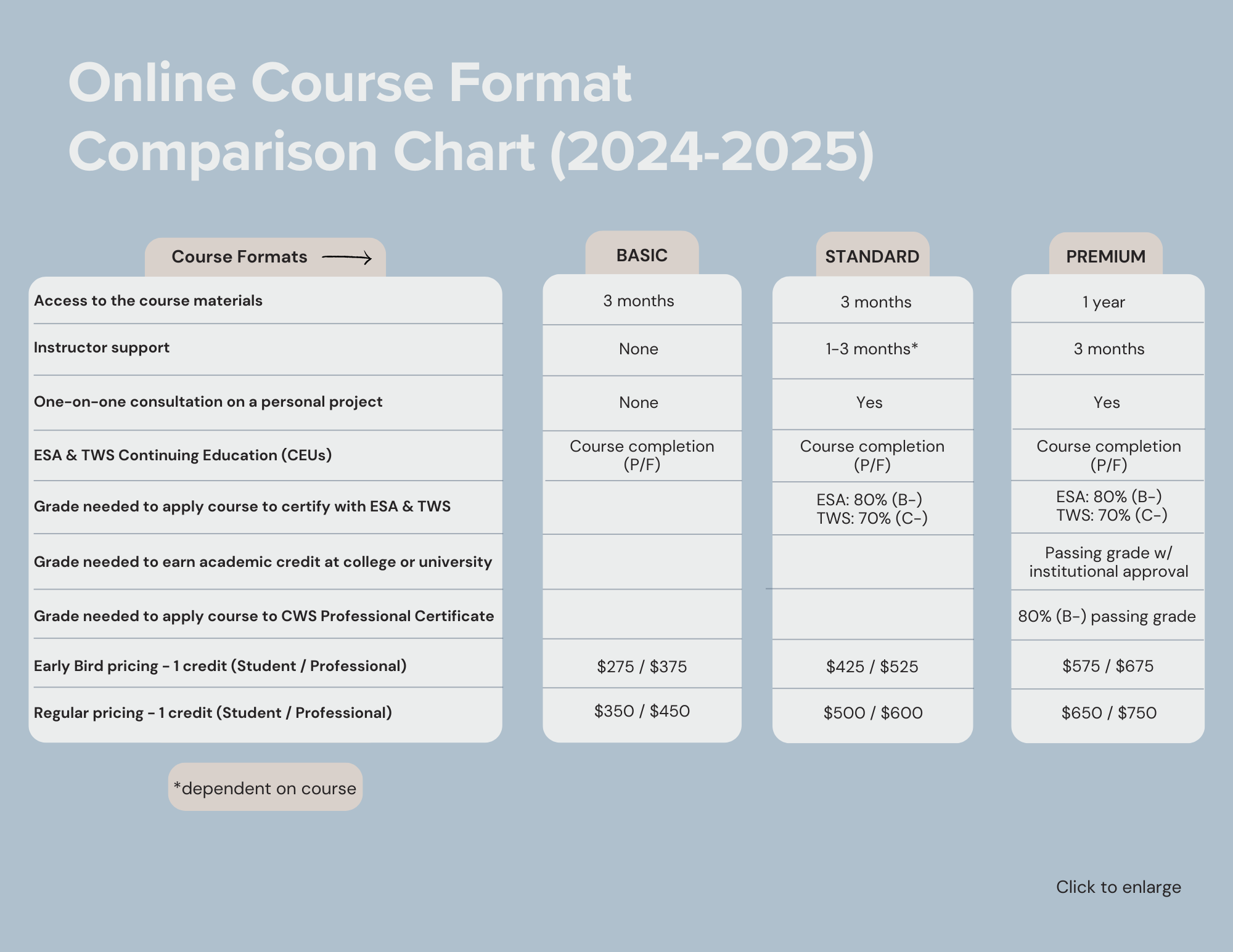Python Boot Camp for Biologists
-
Python is one of the most popular programming languages in the world. This course covers the basics of the
language, with specific attention given to techniques aimed at introductory data science and machine learning. Those new to coding will be able to learn comfortably, as foundational concepts will be emphasized. Coursework will cover Python installation, basic programming concepts, an introduction to data wrangling with the popular Pandas library, basic plotting, and a brief introduction to constructing machine learning models using scikit-learn (a popular modeling package). The course will focus on the fundamentals of Python coding in an interactive computing environment (i.e., within Jupyter notebooks).Why consider Python if you already know R? For general data science, R and Python are very similar and both great tools. You may find Python useful if you have interest in data-heavy careers in the private sector, where Python is more commonly used than R. Additionally, Python has an edge over R for some machine learning and bioinformatics use cases. If you are interested in software engineering, then Python will be a useful skill as it is a more fully-featured language than R.
-
No prior experience is required.
-
Various online resources introduced throughout the course
-
Module 1: Introduction to Python
Objective: Give an overview of Python’s capabilities and learn how to install and use the language
Outcomes:
Learn how Python is used in the world today.
Install Python and the associated suite of useful software (Conda, Jupyter, and an integrated development environment of the user’s choice).
Understand what these different pieces of software do and how they work together.
Module 2: Python basics
Objective: Become familiar with Python fundamentals and using Python interactively.
Outcomes:
Learn how to write code in the Jupyter environment.
Learn how to assign values to create objects.
Learn the different types of data that can be accessed in Python (object types).
Learn how to perform arithmetic.
Learn basic manipulation of text strings.
Learn what a function is and how to use one.
Module 3: Coding fundamentals
Objective: Learn the building blocks that can be combined to create programs.
Outcomes:
Learn how to define functions that accomplish a specific task.
Use conditional statements to specify the logic of a program.
Learn looping constructions that direct the computer to repeat tasks.
Explore the wide world of Python packages and gain experience installing them.
Module 4: Data ingestion and wrangling
Objective: Build knowledge of how to manipulate data using base Python and the popular Pandas package.
Outcomes:
Ingest text files (e.g., comma separated values files)
Learn what a dataframe is and why it is a useful tool for data representation.
Learn how to subset a dataframe to select focal data.
Apply functions to manipulate data in common ways, including changing values in the dataframe, changing the data frame from long to wide format, and more.
Learn the different types of data recognized by Pandas and gain familiarity with the functions included in the package.
Perform basic plotting (scatter plot, histogram, etc.)
Learn what the next steps are for more advanced Python usage.
COURSE OPTIONS & INFORMATION (Review chart above, then click below)
-
FORMAT:
3 months of access to course materials as you work at your own pace
CONTINUING EDUCATION:
16 CEUs with The Wildlife Society
4 CEUs in Category I(a): Scientific Education and Training with the Ecological Society of America
Go to our Continuing Education Page for more details
DATES & PRICES:
Winter: Jan 6 - Mar 23 (early bird ends Dec 2): $275 student / $375 professional
*Early bird saves $75
-
FORMAT:
3 months of access to course materials as you work at your own pace
Get instructor support for the 3-month term via email, discussion threads, group meetings, and one-on-one appointments
After working through the course materials, set up an optional meeting with the instructor to discuss your own personal project from work or school
CONTINUING EDUCATION:
16 CEUs with The Wildlife Society
4 CEUs in Category I(a): Scientific Education and Training with the Ecological Society of America
Go to our Continuing Education Page for more details
CERTIFICATIONS:
Earn 1 credit toward certification as an Ecologist (at any level) with Ecological Society of America
Earn 1 credit toward certification as an Associate/Certified Wildlife Biologist® (at any level) with The Wildlife Society
Go to our Academic Credit Page for details
DATES & PRICES:
Winter: Jan 6 - Mar 23 (early bird ends Dec 2): $425 student / $525 professional
*Early bird saves $75
-
FORMAT:
12 months of access to course materials as you work at your own pace
Get instructor support for the 3-month term via email, discussion threads, group meetings, and one-on-one appointments
After working through the course materials, set up an optional meeting with the instructor to discuss your own personal project from work or school
CONTINUING EDUCATION:
16 CEUs with The Wildlife Society
4 CEUs in Category I(a): Scientific Education and Training with the Ecological Society of America
Go to our Continuing Education Page for more details
CERTIFICATIONS:
Earn 1 credit toward certification as an Ecologist (at any level) with Ecological Society of America
Earn 1 credit toward certification as an Associate/Certified Wildlife Biologist® (at any level) with The Wildlife Society
Earn 1 credit towards a professional certificate in Applied Quantitative Ecology with CWS
Earn an additional 1-2 academic credits with an Applied Project
Go to our Academic Credit Page for details
DATES & PRICES:
Winter: Jan 6 - Mar 23 (early bird ends Dec 2): $575 professional / $675 student
*Early bird saves $75
INSTRUCTOR
SCHOLARSHIPS
Full scholarships are available to participants from countries designated as “lower income” and “lower middle income” in the World Bank List of Economies. Please see our CWS World Scholars Program page for details.
CANCELLATION POLICY
Cancellations 30 days or more before the start date are not subject to cancellation fees. Cancellations <30 days before the start date are subject to a 50% cancellation fee. No refunds once the course begins.




